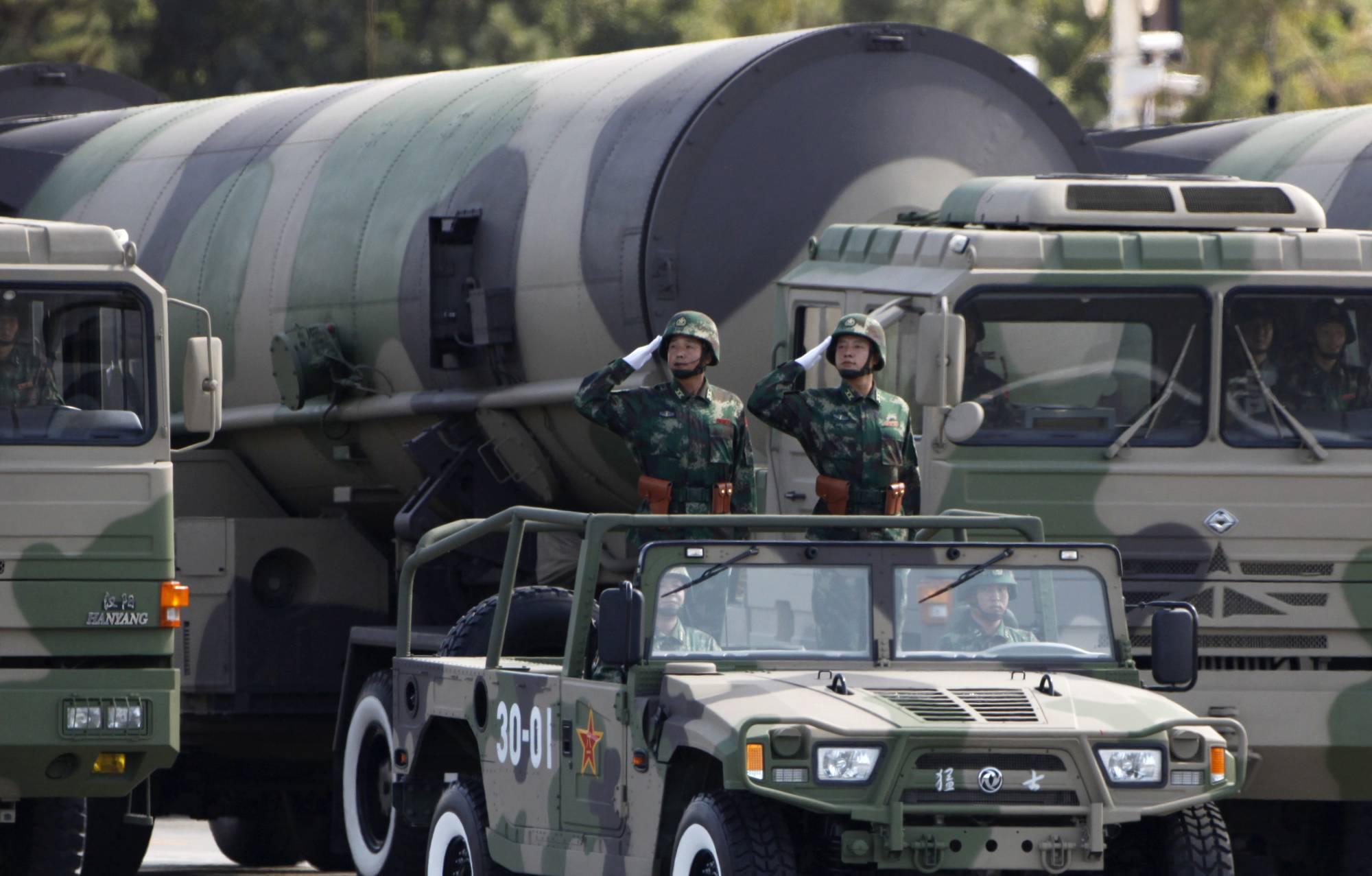Don’t believe everything you read in the media. While headlines after last week’s three-hour virtual summit between U.S. President Joe Biden and his Chinese counterpart, Xi Jinping, highlighted their readiness to talk about nuclear weapons, there is no — zero, zip, none — chance that those will be “arms control talks.”
Still, the prospect of bilateral conversations about “strategic stability” sparks nervousness in Tokyo, which is a feature, not a bug, in Beijing’s thinking. As always, it is incumbent on the U.S. to recognize the great sensitivity attached to these discussions (which they do), keep its allies informed of developments with China (which they try to do), to consult with them (ditto) and ensure that they understand U.S. statements and intentions. It also underscores the necessity of deeper integration and modernization of the alliance, a process that is underway but is being delayed by the changes in government in Japan.
According to the U.S. readout from last week’s chat, Biden “underscored the importance of managing strategic risks” and “noted the need for common-sense guardrails to ensure that competition does not veer into conflict.” The day after the meeting, Jake Sullivan, Biden’s national security adviser, said that the two men discussed “the need for a strategic stability set of conversations ... that cut across security, technology and diplomacy.” But, Sullivan added, the talks wouldn’t look like the U.S.-Russia “strategic stability dialogue,” which is the product of decades of talks and negotiations.



















With your current subscription plan you can comment on stories. However, before writing your first comment, please create a display name in the Profile section of your subscriber account page.